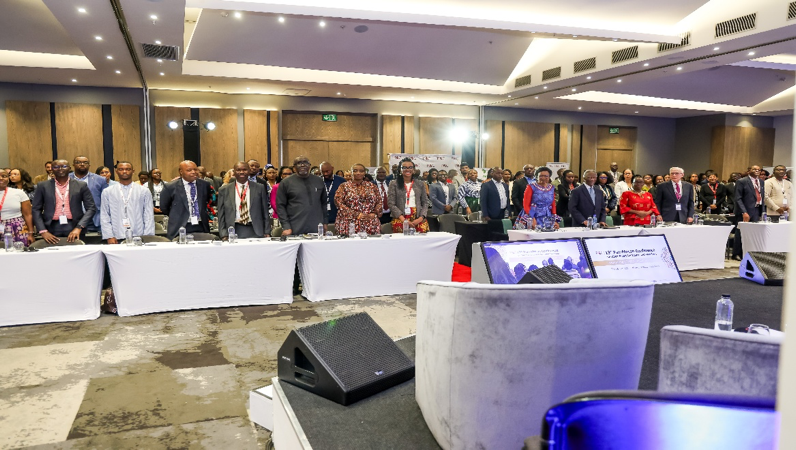Gambiaj.com – (Johannesburg, South Africa) – Africa is losing nearly $90 billion every year to illicit financial flows (IFFs), draining resources meant for hospitals, schools, and infrastructure. Policymakers, academics, civil society representatives, and international experts recently gathered in Johannesburg for the 13th Pan-African Conference on Illicit Financial Flows and Taxation (PAC 2025), where they pledged renewed action to curb the hemorrhage of the continent’s wealth.
The gathering marked a decade since the landmark 2015 High-Level Panel (HLP) report exposed the staggering scale of illicit flows leaving Africa.
New estimates suggest the problem has worsened, with losses doubling over the past ten years and further compounded by $240 billion lost to corruption, $275 billion through profit shifting, and $70 million in other leakages.
In a joint declaration, African leaders reaffirmed their commitment to fighting IFFs and advancing tax justice, framing the issue as one of sovereignty, development, and public trust. “Every dollar lost represents schools not built, hospitals underfunded, and communities deprived of essential services,” the statement noted.
Delegates stressed that tackling IFFs is not merely a technical exercise but a political imperative. They linked persistent financial outflows to colonial legacies, global financial exclusion, and governance weaknesses that continue to enrich elites while impoverishing ordinary citizens.
Conference discussions underscored the importance of taxation as a tool not only for raising revenue but also for driving structural transformation, democratic accountability, and equitable resource distribution.
Delegates highlighted industrialization, job creation, and domestic capacity-building as priority areas for aligning tax systems with Africa’s development agenda.
The declaration outlined several priorities, including strengthening regulatory frameworks, enhancing intelligence sharing and interagency cooperation, and expanding financial data analysis. Delegates also committed to scaling up the Anti-IFFs Policy Tracker, a digital tool that could help countries recover up to 2.5 percent of annual revenue.
Public health and climate finance were singled out as areas where taxation could deliver immediate impact.
Delegates called for health taxes to curb crises like tobacco and alcohol-related diseases, and for climate finance to be anchored in the polluter-pays principle, ensuring African nations can fund resilience without bearing the costs of crises they did not cause.
International engagement was another key theme, with calls for Africa to play a stronger role in shaping global financial rules through platforms such as the UN Framework Convention on International Tax Cooperation (UNFCITC).
Briggs Bomba, Director of Programs at TrustAfrica, emphasized that reflection must now give way to action. “Ten years after the HLP Report set out a roadmap, we must identify what has worked, close the gaps, and ensure that policies translate into tangible benefits for ordinary citizens,” he said.
As PAC 2025 concluded, delegates stressed that Africa’s resources must serve its people, not elites or external interests. With clear priorities laid out for the next decade, the challenge now lies in implementing reforms with political will, pan-African solidarity, and accountability.
The final declaration sent a resolute message: fiscal justice is central to peace, security, and inclusive development, and reclaiming Africa’s stolen wealth is essential to the continent’s sovereignty and prosperity.










